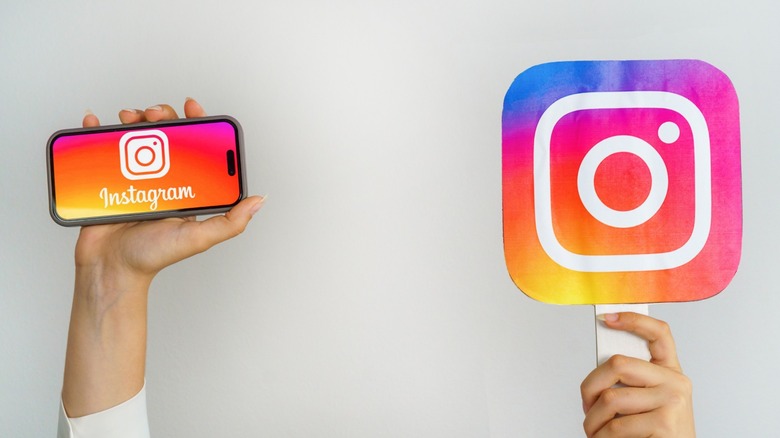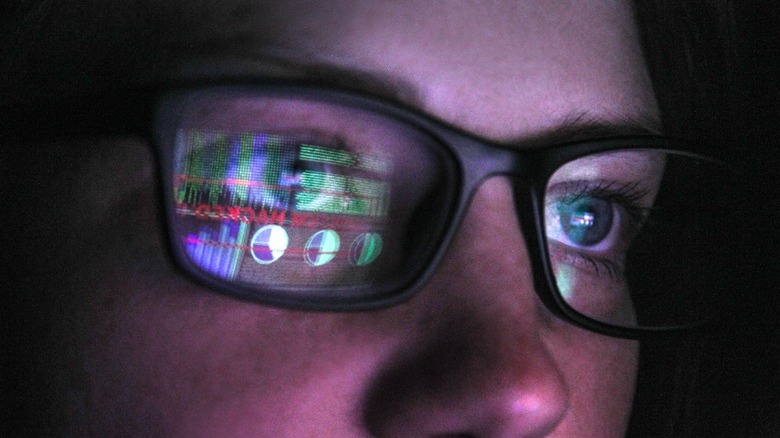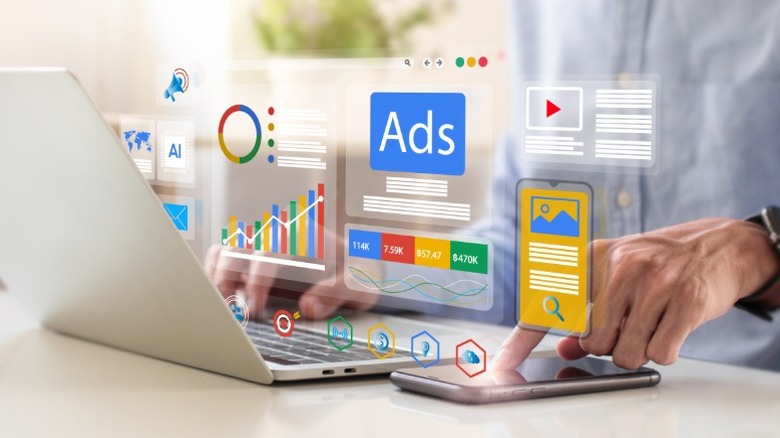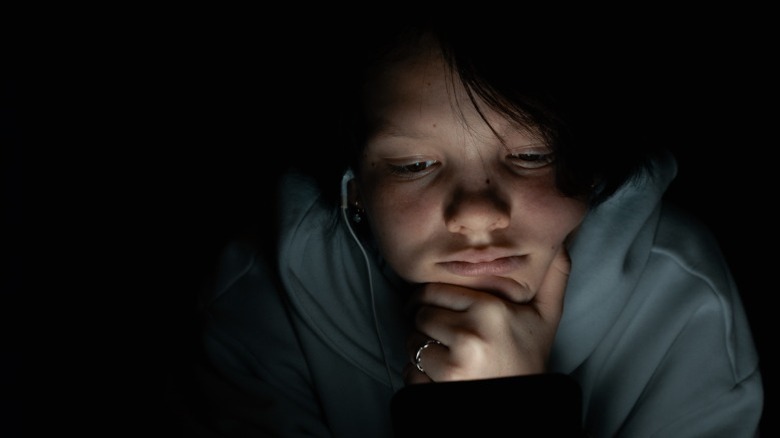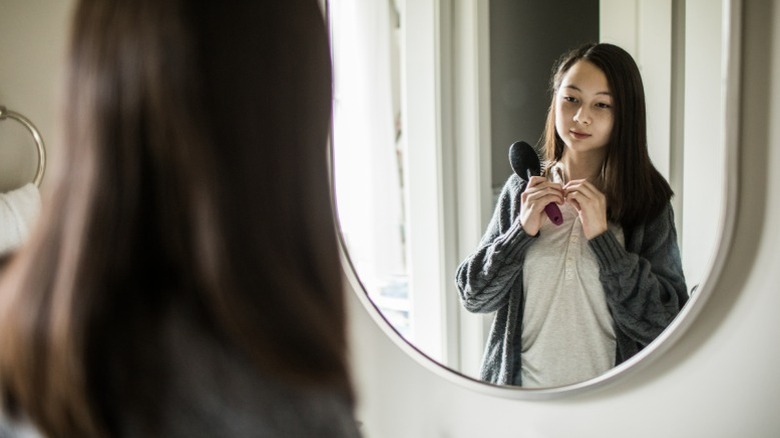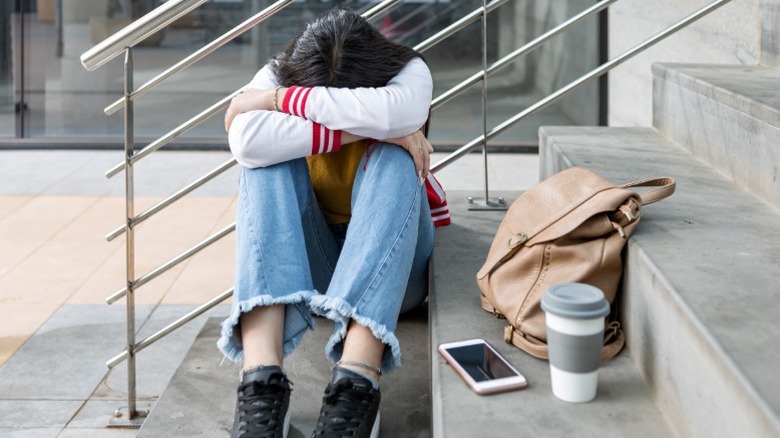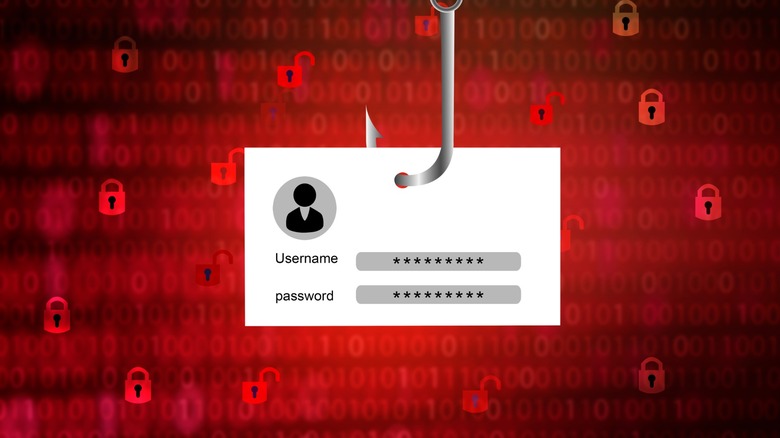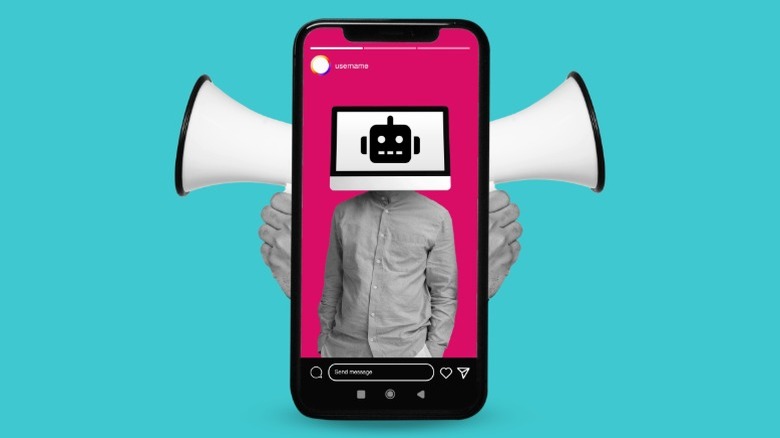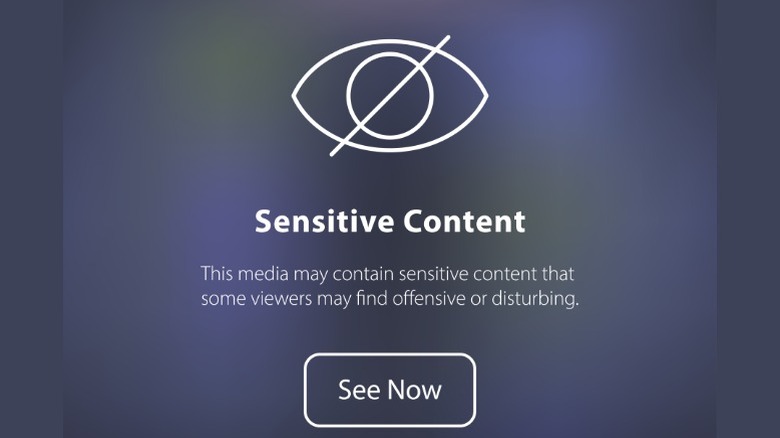Unsettling Reasons Why You Might Want To Avoid Using Instagram
Instagram may seem like the perfect app for staying connected, but it's not all pretty filters and viral memes. The platform comes with hidden pitfalls that could affect your mental health, privacy, and even your wallet. Behind the glossy filters and endless scrolling lies a darker reality. It's more than a social media platform; it is a powerful tool designed to grab your attention, harvest your data, and keep you coming back for more.
Instagram is one of the world's leading and most popular social media applications, so it can be difficult to avoid using it altogether, even when there are apparent signs you need to. Though it's true that Instagram has instituted some safeguards and settings to improve your experience, many fail to address the root causes of its negative impacts. Some of these problems may be obvious, such as privacy and security issues. Others, however, may not be apparent and could leave you dumbfounded. With that in mind, here are 10 unsettling reasons why you might want to avoid Instagram.
Privacy nightmare
Starting off with what is probably the most obvious no-no about Instagram: privacy. It is not an exaggeration to say Instagram knows more about you than your best friend does. Using the app isn't just about sharing media with friends. You, in the process, hand over a goldmine of personal data to a company that profits from knowing everything about you.
When you use Instagram, you leave a digital footprint that it collects through geofencing, tracking cookies, cross-site tracking, and so on. Every time you like a post, tag a location, or even pause a video, the app collects data. It tracks your interests, shopping habits, and even your exact whereabouts. As if that isn't unsettling enough, all this information doesn't just sit there — it is instead used to target you with ads and is then sold to third parties.
Instagram offers some settings to help you hide your activity and protect yourself from identity theft and data mining, such as using strong passwords and enabling two-factor authentication. However, these measures only affect the user-facing aspects, as what happens behind the scenes is still mostly out of your control.
Algorithm manipulation
Instagram decides what you see, not you. Its algorithm prioritizes posts that keep you glued to the app, not the ones you actually care about. That's why your best friend's update gets buried under a meme you saw three times already. The algorithm feeds you content based on what's most likely to make you scroll longer, not what necessarily adds value to your day. And don't think you're seeing the real world because Instagram carefully curates your feed to push trends, ads, and influencers. The result is that you lose control of your own experience, and Instagram stays in charge of what grabs your attention.
The algorithm isn't particular to any one user. In fact, Instagram uses a different algorithm for your feed, the explore page, and even the reels section. What you see on your explore page is influenced by how you interact with posts and accounts as well as other accounts who you share similar interactions with. The more likely the algorithm thinks you are to engage with a post, the more often you'll see similar content.
Algorithm curation can feel restrictive, keeping you closed off from content outside the app's assumptions about your preferences. One way to get around it is by hiding or turning off suggested posts on your feed. Meta recently introduced a feature to reset your algorithm altogether, though its effectiveness remains to be seen.
Ads everywhere
Instagram is a marketplace. It feels less like a social app and more like a nonstop ad reel. Sponsored posts pop up between every few photos, reels push products you've barely thought about, and even stories are packed with "Swipe Up to Buy" links. Ads aren't just annoying; they're hyper-targeted. As stated earlier, Instagram watches your activity to figure out what you're most likely to click on. It then floods your feed with those ads so that browsing starts to feel like a shopping trip you didn't sign up for. It's overwhelming, distracting, and makes you question whether the app is about connecting with people or just selling to you constantly.
Ads can ruin your experience on any site or application, and Instagram is no different. In recent years, there has been a tremendous increase in the number of ads shown on our feeds. Even when you adjust your ad preferences, it doesn't translate into fewer ads; you'll just see fewer of the ads you don't want to see. Hiding ads individually, reporting them, or blocking certain brands does not seem to help much. It feels like we are stuck with the whims and caprices of the profit-centric app, which feels less and less like it has our best interests at heart.
Time consumption
Instagram is a sneaky time thief. You open the app to check one thing, and suddenly, an hour is gone. Many of us are guilty of spending countless productive hours on the app. Studies show that with over 4 billion social media users globally, the average person spends about two and a half hours on social media daily. A large chunk of those hours goes to Instagram, which is second only to TikTok. And there are also ways to check how much time you actually spend on the app if you're in doubt.
Endless scrolling, captivating reels, and curated feeds are designed to keep us hooked. The algorithm knows exactly how to hold your attention, feeding you content that's impossible to resist. Before you know it, you've lost valuable time you could've spent being productive, relaxing, or connecting with people in real life. It's not just a few minutes here and there. It's hours that add up fast.
Instagram doesn't just take your time; it takes your focus and leaves you wondering where the day went. This can be especially unsettling when you consider all the things you could have been doing instead. From missed deadlines to chores you've procrastinated and even sleep you've deprived yourself of, Instagram is culpable, and you might be better off without it, even if temporarily.
Body image
Another major unsettling truth about Instagram is that it can mess with how you see yourself. Perfect selfies, fitness models, and glowing vacation shots flood your feed, making it hard not to compare. Whether we like it or not, we are in an age where social standards, values, and norms are passed on through social media. This constant exposure can hit your self-esteem hard, making you overly critical of your appearance. Over time, Instagram stops being fun and starts feeling like a mirror reflecting what you think you lack. It's a toxic cycle that's tough to escape.
The problem is most of it isn't real, as filters, angles, and editing apps create impossible standards, leaving you feeling like you don't measure up. Even influencers struggle to keep up with their own curated image. People present a highly selective version of themselves. This explains why there have been so many scandals and revelations of their true personality that are contrary to what they have portrayed. The body image problem is rampant among teenage girls who are still forming and growing confidence in their bodies.
The other side of the body image problem is that it pushes people to move away from their real selves and focus on the image they present online. This often leads to missing out on truly living their lives, as they prioritize capturing every moment for likes, shares, or follows. This toxic cycle can make Instagram less enjoyable and more damaging to your mental health.
Cyberbullying
Closely related to the body image issue on Instagram is cyberbullying. Cyberbullying is and has been one of the platform's major challenges, often hiding in plain sight. Anonymous accounts, cruel DMs, and public trolling can make Instagram a toxic space for many users. Even subtle jabs, like exclusion from group photos or passive-aggressive comments, can sting. The platform's design makes it easy for negativity to spread, and reporting features often feel like a dead end. For those targeted, the constant harassment follows them wherever they go, right in their pocket.
Instagram's pretty filters can't hide the ugly reality of how damaging online bullying can be. For years, Meta has consistently come under attack for its failure to improve in-app safety measures against cyberbullies. Cyberbullying saw an outbreak in 2020 during the COVID-19 pandemic. Since then, even celebrities, including soccer players, have been subject to insults and abuse. This has led some to even deactivate their accounts. Instagram has instituted certain measures to help combat cyberbullying, such as reporting, blocking, and restricting comments. It has also incorporated AI technology to identify and remove harmful comments and posts. In spite of these efforts, there is still some way to go in ensuring Instagram is a safe, healthy, and non-toxic platform that promotes its users' mental health.
Mental health impact
Speaking of mental health, Instagram isn't as harmless as it looks when it comes to your mental well-being. Sure, we all need to use social media to connect with friends, loved ones, and celebrities we admire. However, with these benefits come significant disadvantages that play a crucial role in our overall wellness. One such issue is addiction. Social media addiction is the massive elephant in a room called the digital age. Many people are hooked on these platforms, including Instagram, without even realizing it. Studies have linked heavy Instagram use to depression, sleep issues, and even body image struggles. An active social media lifestyle can also encourage isolation, which often results in anxiety and depression if left unchecked.
Scrolling through picture-perfect lives can leave you feeling like you're falling short. The constant comparison to influencers, friends, or even strangers creates anxiety, low self-esteem, and a nagging sense of fear of missing out. Photos aside, the notifications, likes, and comments keep you chasing validation, turning the app into a source of stress instead of joy. In fact, mental health concerns were the primary reason Instagram introduced a feature allowing users to hide likes on their posts. The app may look fun, but its impact on your mental well-being can be anything but. So, sometimes you need to take a step back and maybe even delete it to relate with people and yourself in a much healthier way.
Catfishing and phishing scams
Instagram is also a hotspot for catfishers and scammers. Fake profiles with stolen photos are often disguised to trick people into falling for emotional or financial traps. One moment, you're chatting with someone who seems genuine, and the next, you're caught in a scam. Phishing schemes are particularly dangerous. This is when scammers send DMs using bogus pages to steal your credentials. Even giveaways and supposed influencer partnerships can be elaborate cons. Here, an account with many made-up followers and bots may convince you that you've won some sort of prize, only to use it as a ploy to obtain sensitive data. Scammers may also pretend to be influencers offering fake promotions.
There are many other scams on Instagram, including fake job offers, music promotions, sponsorship scams, crypto scams, investment scams, and fake product sales. Instagram's lax verification process makes spotting these traps tough. A good rule of thumb is to avoid sharing certain things on social media. Catfishing and scams are never a good experience, so if you've been a victim of one, chances are it has affected your ability to trust Instagram sources. The important thing is to ensure you observe safety protocols and avoid exposing your private data.
Beware of the bots
Instagram isn't just full of people. It's crawling with bots. When we talk about bots, we're referring to automated programs that can mimic human behavior on the app. They run fake accounts that like your posts, follow you, and even slide into your DMs with spam messages. They might promise followers, sell sketchy products, or push scams disguised as brand deals. At first, bots appear harmless, but they ruin the authenticity of the platform. You're left questioning whether a new follower is a real person or just another bot clogging your feed. Worse still, bots inflate engagement stats, making it harder to tell what's genuine.
There are many ways to safeguard your account from these bots. We've gone over most of these, such as not exposing sensitive data and reporting suspicious or abusive accounts. You can also guard against bots by growing your followers organically, as many of these bots infiltrate your account when you try to buy followers. Another way to easily spot bots is through their spammy messages, generic comments, and awkward usernames.
Content censorship
If you think you control your profile, think again. Instagram loves to play referee with your content, but its rules often feel inconsistent. Sometimes, posts are flagged or taken down without clear explanations as to why. Creators, especially smaller ones, struggle to stay visible while navigating unclear guidelines. Meanwhile, controversial or harmful content can still go unchecked. The platform decides what's acceptable, and its biases can silence important conversations or artistic expressions.
Instagram's content censorship is especially apparent when it comes to political topics. It claims to limit political content because such posts can harm the user experience. Mark Zuckerberg confirmed this back in 2021, stating that the app aimed to reduce instances of misinformation to its barest minimum. While this goal has been partially achieved, it seems the censorship has gone overboard.
Creators often complain about harmless posts being taken down for censorship reasons. It doesn't just stop there – users can also experience shadowbanning, which limits the reach of their other posts. Censorship is vital for keeping you safe and accurately informed. But Instagram has not struck the right balance between doing that and encouraging freedom of expression. Your account should feel like yours, even though it's on Instagram's platform. These are all reasons you might want to rethink how much you engage with Instagram — or avoid it entirely.
